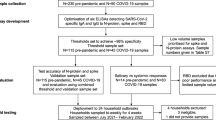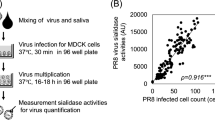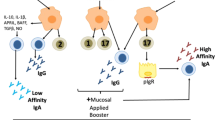Abstract
ABSTRACT: Levels of salivary antibodies directed against Haemophilia influenzae b (Hib) capsule, measured by ELISA and standardized to the total salivary IgA, were compared among 57 patients with Hib infections, 117 household and 49 day care contacts of patients, and 53 control individuals with no known contact with Hib. Nineteen of the household or day care contacts were throat or nasopharyngeal culture positive for Hib. Eighty % of evaluable patients had polyribosylribitol phosphate (PRP)-specific IgA in their saliva, compared with 36% of contacts who were throat or nasopharyngeal culture positive for Hib, 53% of contacts who were throat or nasopharyngeal culture negative for Hib, and 30% of control children. In patients, no correlation between age and level of salivary anti-PRP antibody was seen, but patients less than 3 y old were more likely to have these antibodies than were older patients. Salivary PRP-specific IgA antibodies, associated with either Hib colonization or PRP vaccination, tended to decline over time. Thus, PRP-specific IgA antibodies can be identified in the saliva of children over a wide age range, including those colonized with Hib or vaccinated with PRP, but these antibodies appear to decline after antigenic stimulation ceases.
Similar content being viewed by others
Log in or create a free account to read this content
Gain free access to this article, as well as selected content from this journal and more on nature.com
or
Author information
Authors and Affiliations
Rights and permissions
About this article
Cite this article
Gilsdorf, J., McDonnell, W. Mucosal Antibodies to Haemophilus influenzae Type b Capsular Polysaccharide. Pediatr Res 29, 420–423 (1991). https://doi.org/10.1203/00006450-199105010-00002
Received:
Accepted:
Issue date:
DOI: https://doi.org/10.1203/00006450-199105010-00002



